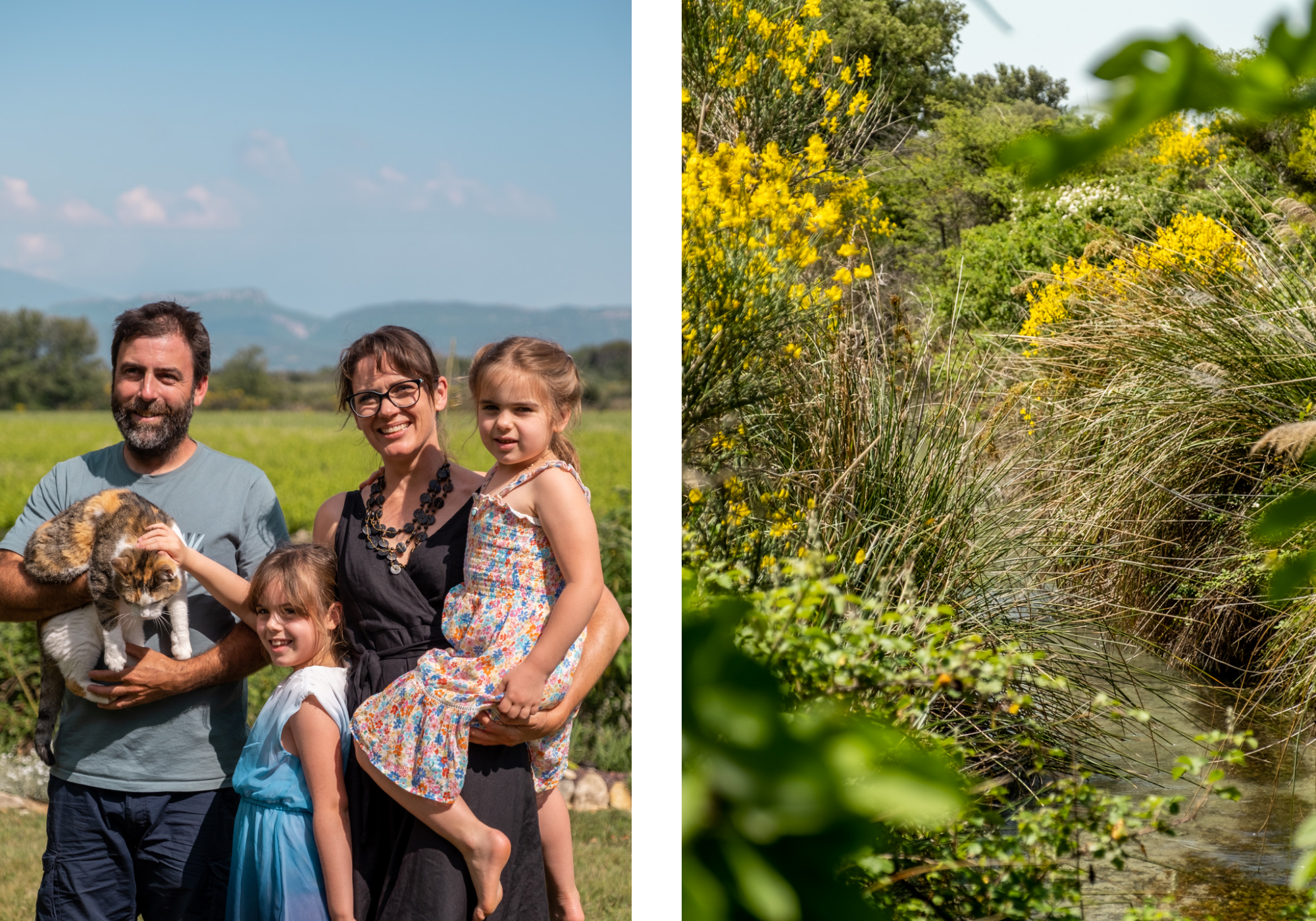Blown Away by Rouge Bleu
A Family Finds a Home in a Tempest
We met Caroline Jones and Thomas Bertrand on a calm day in Saint-Cécille, one of the few days where you could keep your hat on. This small village near the revered appellation of Châteauneuf-du-Pape is rugged, rocky, and weather-beaten. It is also a veritable wind tunnel.
There is one name for the force that defines this place: Mistral. It is a constant, mighty wind that blows through these foothills, turning every tree sideways for its life.
It’s not the place to go if you’d like to play golf or tennis, or even enjoy a simple meal outside. It is, however, a marvelous place to grow grapes.
Thomas from Rouge Bleu tells us about a funny site during harvest. The old, gnarled bush vines here are low to the ground, and one must squat beside them in order to gather the precious bunches of Grenache, Cinsault, Mourvèdre, and about a dozen more varieties.
“We see people fall over all the time, squatting next to the vines. The mistral just rolls them over.”
But, it is the Mistral that makes growing wines like the fresh, vibrant, joyful ones at Rouge Bleu possible. Thomas tells us, “When we set out to go on our own after years in the wineries and vineyards of other people, we knew one thing: if you’re a winemaker, you end up drinking a lot of your own wine. We wanted something fresh and drinkable, and the Mistral makes that possible.”
The wind descends from the Alps and blows down through the Rhône Valley from North to South. It cools the vines down from the heat of the Mediterranean sun here in Southern France, and it also dries them out, “chasing the rain,” and preventing all kinds of diseases like mildew and odium.
Living here may have its challenges, but these bizarre conditions actually make life easier in the vineyard.
On this calm day, though, you can take in another defining quality of Saint-Cécille: the garrigue. Referring to the hard, stemmy herbs that proliferate in these windy hills, you can smell rosemary, thyme, sage, and even a bit of lavender in the air. And when you smell the wines, you can sense these intimations there too.
What’s interesting about the interplay of these herbs and the wine is that the herbs are literally flavoring the grapes - the mistral takes the oils that settle on these herb leaves, and it blows them into the vineyard, where the oil affixes itself to the grape skins. When crushed, these oils stay in the juice, reflecting themselves in the final expression.
The word terroir is bandied about a lot these days. When you taste the wines from Rouge-Bleu, you will understand that they could not be made anywhere else on the planet. Caroline and Thomas knew that when they moved into this 17th century farmhouse, and for all of the headaches it causes, they revere the Mistral, and they revel in their vineyards.





